Press releases
40 years after the whaling ban – whales continue to die
Read moretop baby animal rescue stories of 2020
Nothing makes us smile more than the story of a rescued baby animal. Watch the video below and check out the joeys, elephant calves, kittens, and other babies who have made a lasting impression on us in 2020.
Which animal is your favorite?
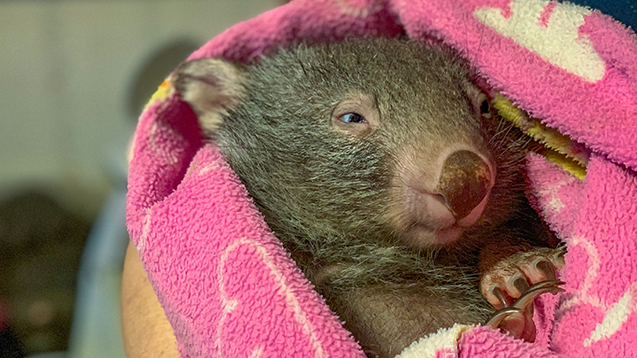
In January 2020, IFAW deployed responders to support our Australia team and care for animals impacted by the devastating bushfires. We received news that a carer at Native Animal Rescue Group in New South Wales had ten rescued baby wombats in rehabilitation. While helping her on-site, we met Ash and Cedar, two of the baby wombats receiving round-the-clock care. Cedar was found by a local landowner who spotted her wandering alone on the road. She was so tiny that the landowner originally thought she was a kitten!
In the wild, wombats spend the first two years of their lives with their mother. To mimic this natural process and ensure that the wombats are ready for life in the wild, the caretakers will look after Ash and Cedar for two years.
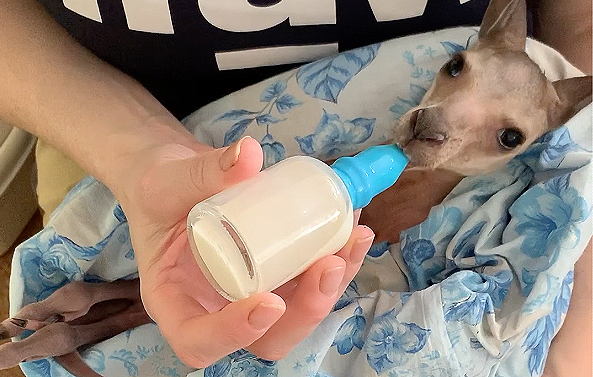
While in Australia responding to the bushfires, we also met George! Our friends at Wildlife in Need of Care Inc (WNC) took in rescued kangaroo joeys left orphaned by the bushfires. George was one of the joeys receiving specialized care. His mother was hit by a car and he was found in her pouch. As a pinky (a very young joey), he was kept in a heated pouch, but after growing his own fur, he was moved to a cloth pouch, and the team plans to release him back to the wild once he is rehabilitated.
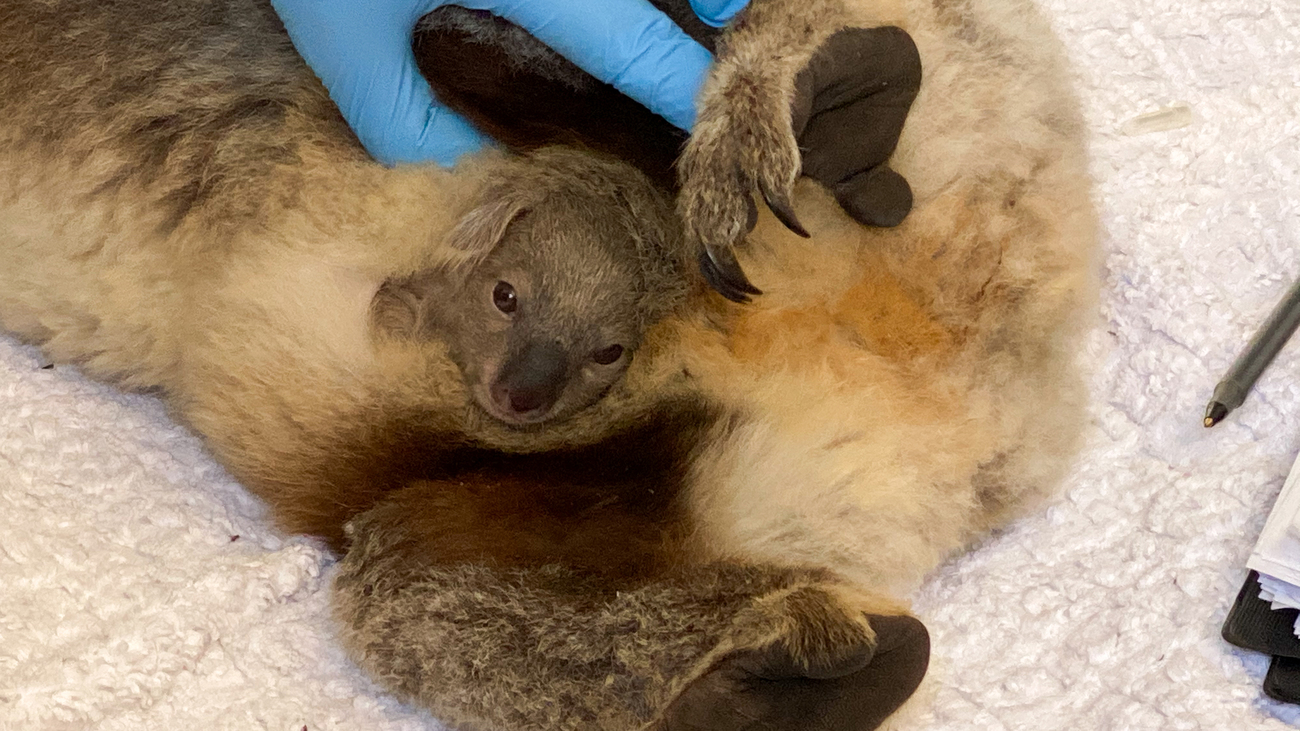
In early 2020, we deployed Bear, the USC x IFAW koala detection dog, to help sniff out and locate animals injured by the bushfires. The team embarked to the site of Two Thumbs Wildlife Sanctuary in New South Wales. Using the scent of their fur, Bear found a mother koala (Jessie) and her joey (Amelia) in need of help. We took the pair of koalas to Australian National University for emergency care and specialized rehabilitation. During the checkup and ultrasound, we found out that Jessie was pregnant! The team named the little joey Jazz and made sure to give her specialized attention. On August 26th, 2020, all three koalas were successfully released back into the wild.
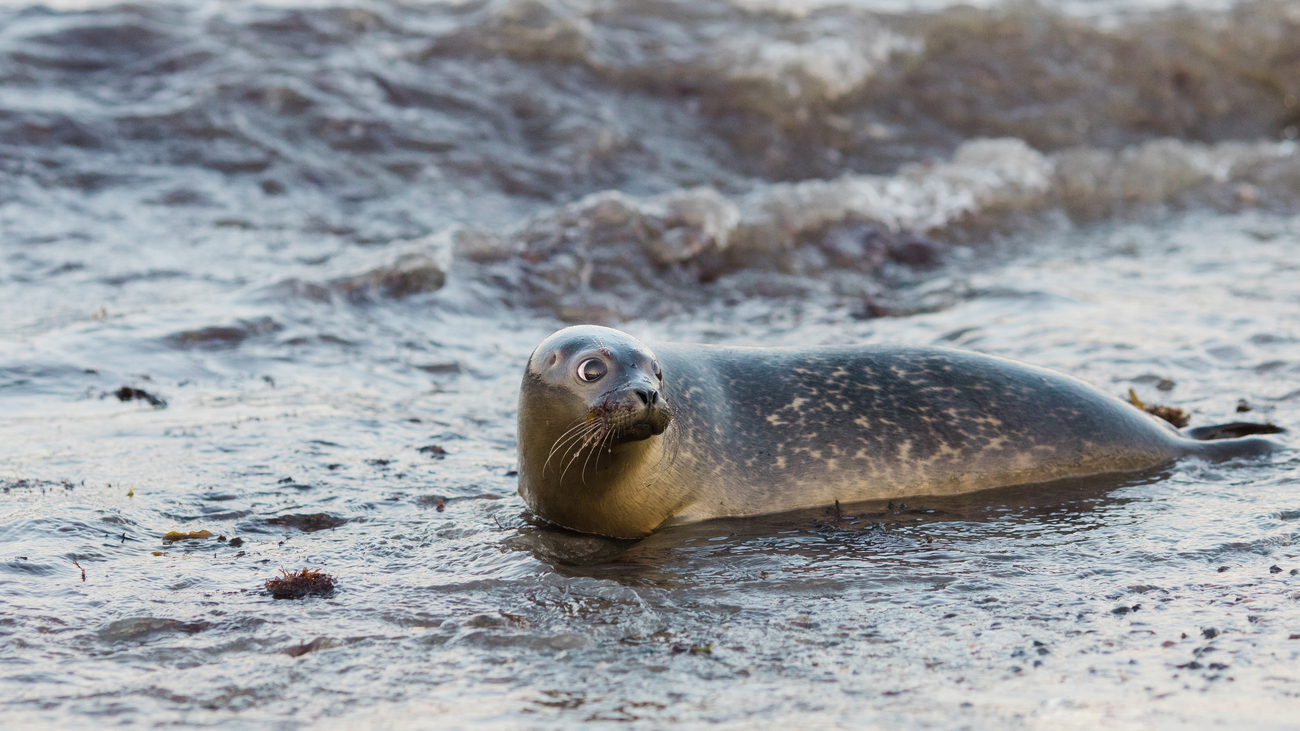
In May, a young seal pup with her umbilical cord still attached was spotted on a beach in Cape Cod, Massachusetts. IFAW’s Marine Mammal Rescue and Research team monitored the pup for 48 hours to ensure the mom was not off foraging for food. When it was determined that the mom was nowhere to be found and not coming back for Plum, the team rescued the pup and brought her to our partner, the National Marine Life Center. During her rehabilitation, she learned how to socialize with other seals and catch fish on her own. In August, Plum was successfully released alongside three other seals.
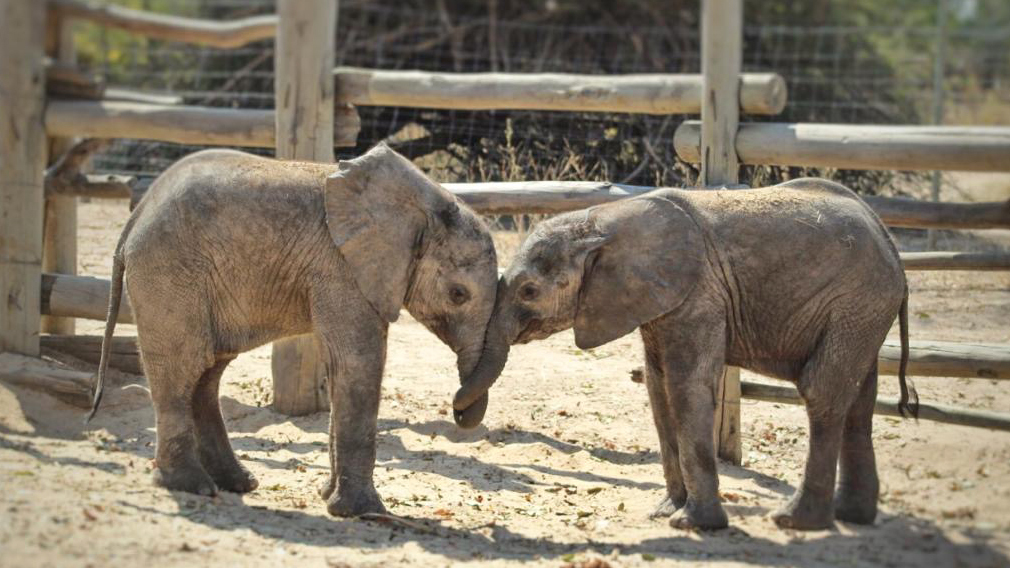
In June 2020, two elephant calves were orphaned after their herd wandered into a village and fled out of fear, leaving the calves behind. Both calves were held at the Kafue Release Facility and then flown to the nursery at the Elephant Orphanage Project in Lusaka! The male calf received the name “Shezongo” (Zongo for short) after the Honorable Chief who had found the calf and immediately called wildlife rescue support. The female calf, who was rescued by a pool of water, was named “Mbila," meaning "to swim underwater" in the Ila language. Over the past few months, the elephants have made great progress learning to hold their bottles on their own and developing trust with their keepers. We’re excited to see how they continue to grow!
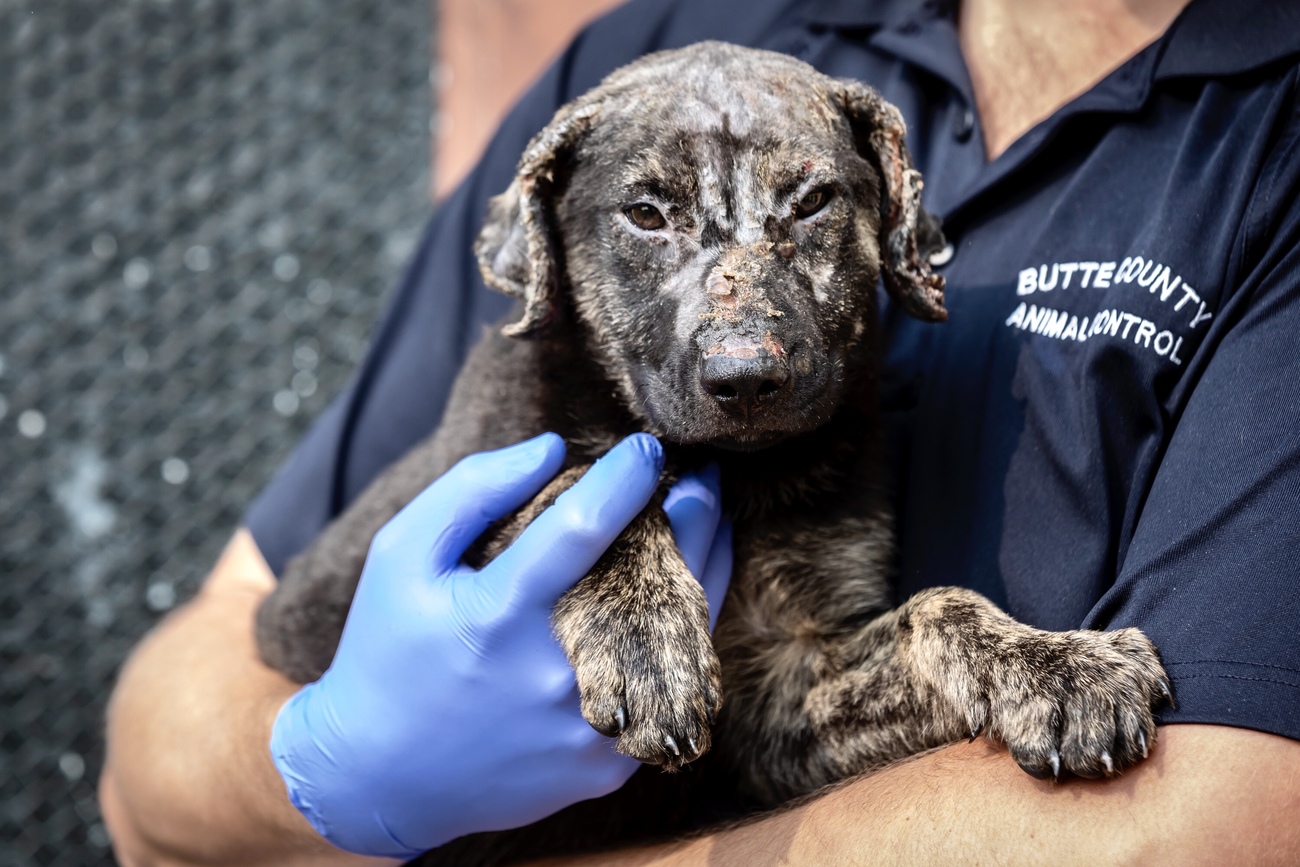
Update: March 3, 2021
Trooper has completed his burn treatment! With the support of his veterinary team and new forever family, he is thriving as a playful puppy.
In September, 2020, IFAW’s Disaster Response team deployed to California to help rescue and care for animals impacted by the North Complex Fire. During an animal search and rescue assignment, a young puppy was rescued after he was found hiding underneath a car near a burned house. He had terrible burns all over his face and was in need of emergency veterinary care. His rescuers rushed him to a local vet clinic that specialized in burns and provided him with the care he needed. In honor of his perseverance, the dog was named “Trooper.” The woman who rescued Trooper is currently fostering him and has plans to train him in search and rescue so he can help other animals in future disasters.
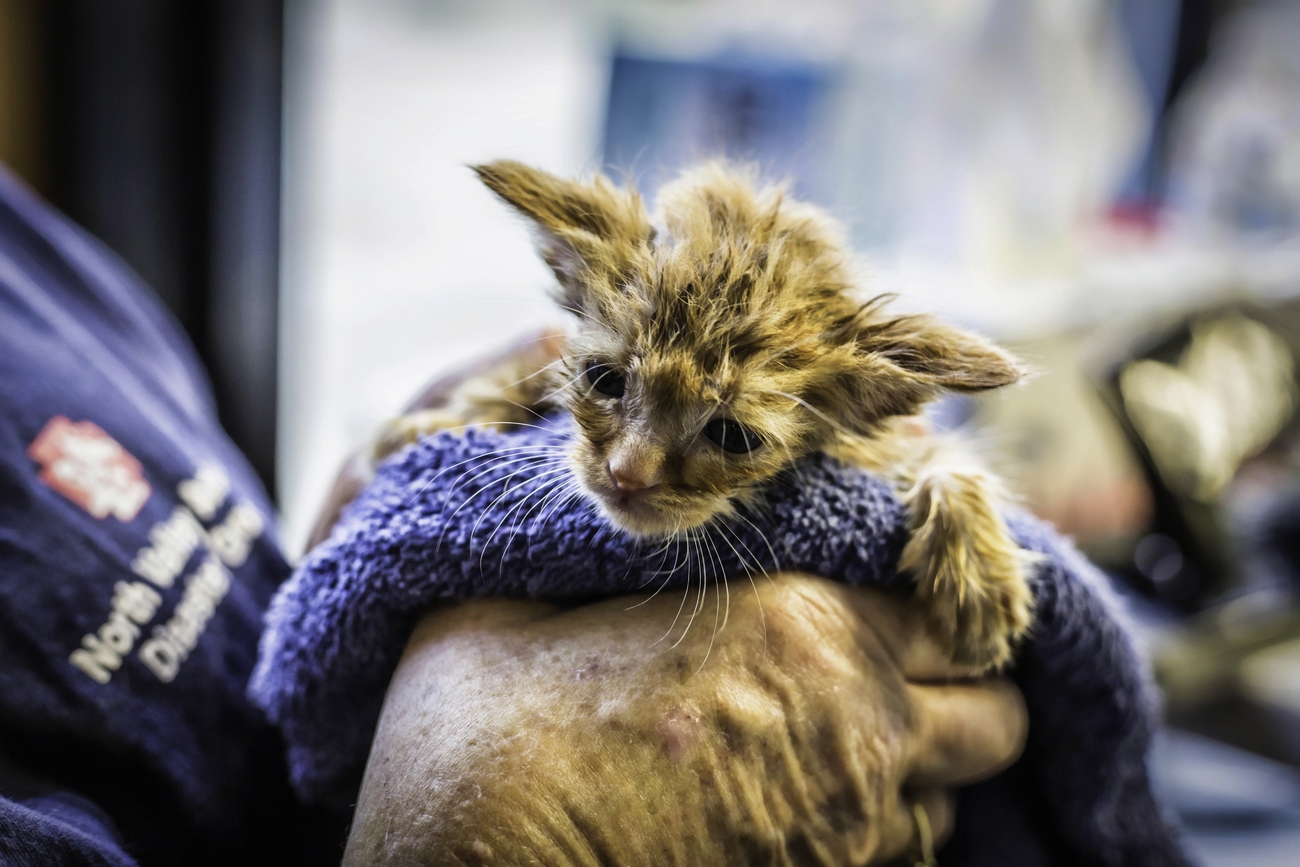
Update: March 3, 2021
"Baby Yoda" has been adopted and is now named Luna! She has a family that adores her and is inseparable from her new furry siblings.
During deployment to rescue animals from the North Complex Fire in California, six Mutual Aid firefighters found a small kitten on the side of the road. They rushed her to the Cal Oak Animal Shelter for emergency veterinary care. When she arrived, she was covered in smoke, ash, and dirt – and in dire need of a bath from the team of responders on site. The team named her "Baby Yoda" after her large ears and cute resemblance to the Baby Yoda character on Disney’s "The Mandalorian." IFAW supported Baby Yoda’s medical expenses and the kitten is recovering with a foster family.
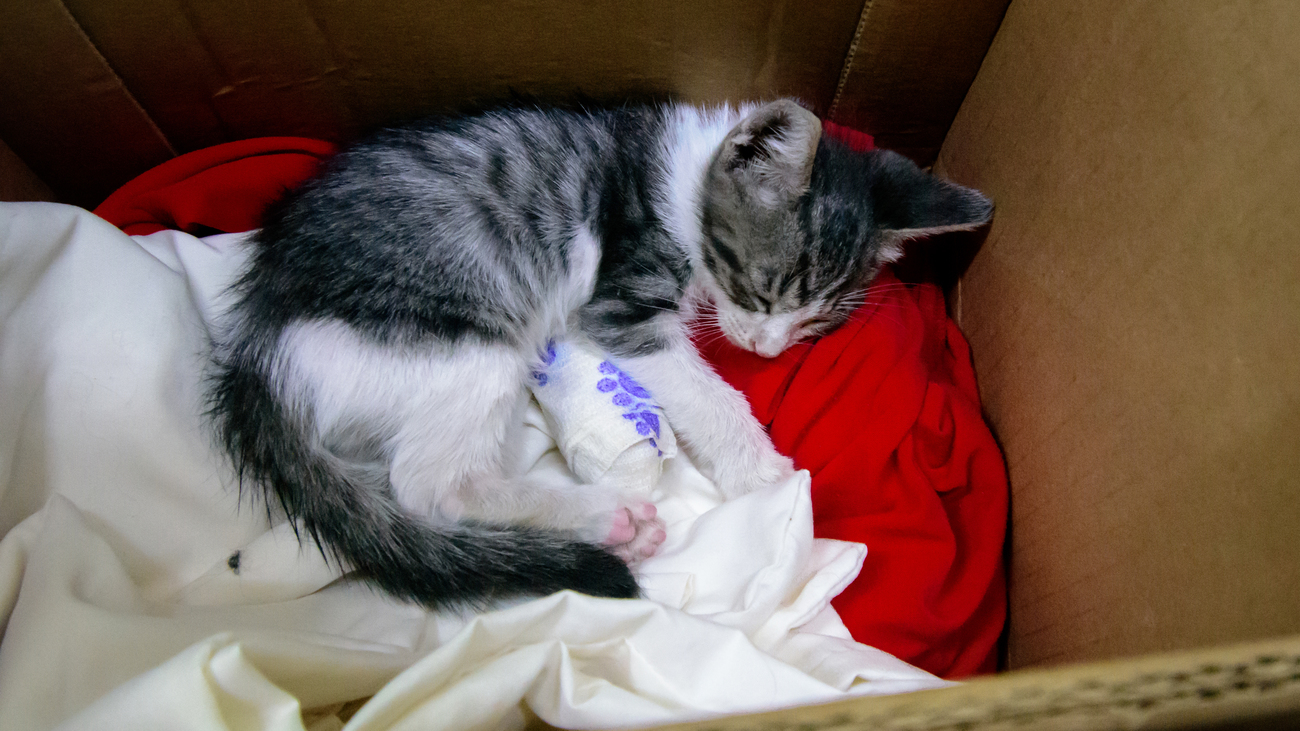
On October 7th, 2020, Hurricane Delta hit the Yucatan Peninsula as a Category 2 storm. IFAW’s Dr. Erika Flores and Joaquin de la Torre Ponce teamed up with our partner Coco’s Animal Welfare Clinic and local authorities to provide veterinary care and emergency sheltering for rescued animals. Rescuers brought in a little kitten named Delta who was suffering from a deep wound that cut circulation to her paw. The team amputated her paw and was able to foster her.
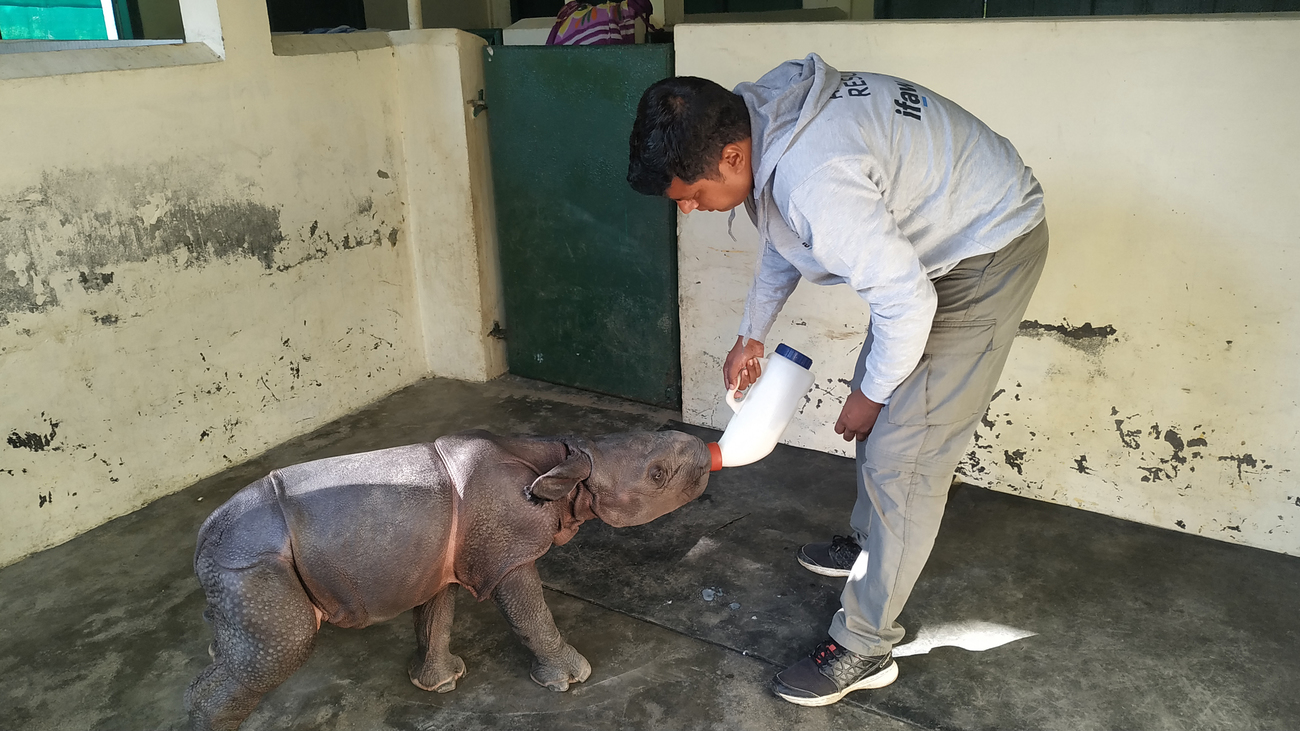
Forest staff and the Honorary Wildlife Warden at Kaziranga National Park found a disoriented 2-3-week-old rhino calf alone on a sandbank of the Brahmaputra river. The team searched hard to locate her mother, but were unsuccessful. She was transported by motorboat to the IFAW-WTI team, who picked her up from the boat and brought her to our rescue center near Kaziranga.
At the time of her rescue, the young calf weighed only 52kg. Since arriving at the center, she has started drinking milk replacement formula and gaining strength. The keepers named her "Kaali" as she was rescued near the celebration of Diwali. Kaali is settling in to her new home and beginning to socialize with another young rescued calf at the center. She will be rehabilitated with the goal of releasing her back into the wild when she is ready.
Every problem has a solution, every solution needs support.
The problems we face are urgent, complicated, and resistant to change. Real solutions demand creativity, hard work and involvement from people like you.
Unfortunately, the browser you use is outdated and does not allow you to display the site correctly. Please install any of the modern browsers, for example:
Google Chrome Firefox Safari